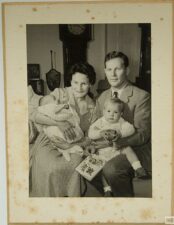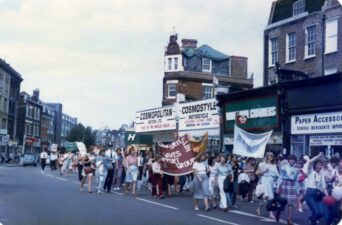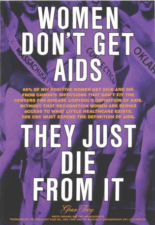WHN Admin.
 Published in 1938 in the Westralian Worker May Holman’s commentary on women Members of Parliament makes interesting reading. May Holman was the first Labor woman to be elected to the Western Australian Parliament. She was a Member from 1924 until her death in 1939. Holman worked for the labour movement in the Timber Workers’ Union and the WA Organisation of Labor Women as well as in parliament. Her ideas about how women can contribute to parliament and belief that she was always treated fairly are of their time. However, they need not necessarily be without merit – possibly some women in the political sphere have been treated as Holman suggests was so in her case. Perhaps not. At times she seems remarkably aware of the issues that still confront women; at others her confidence in women’s passage through the education system, or ‘other spheres of life’, together with the parliamentary process creates a wry smile, if not a grimace. Nevertheless her words of optimism must have been some encouragement to women who were attempting to break out of the confined roles confronting them. For example, she notes that she involved women in political discussion, speaking to them face to face in their kitchens – bringing the public to the domestic with a vengeance, perhaps. She bemoaned women’s lack of involvement in politics, suggesting that such discussions were an integral part of bringing women into the political sphere, even though she believed that women should not be in parliament only to serve women’s cause. Perhaps her optimism about the labour movement and her role in it is justified in that she was given the opportunity to write, seemingly uncensored (although possibly with great care) of the roles she saw for women outside the domestic sphere in the late 1930s. In her own words:
Published in 1938 in the Westralian Worker May Holman’s commentary on women Members of Parliament makes interesting reading. May Holman was the first Labor woman to be elected to the Western Australian Parliament. She was a Member from 1924 until her death in 1939. Holman worked for the labour movement in the Timber Workers’ Union and the WA Organisation of Labor Women as well as in parliament. Her ideas about how women can contribute to parliament and belief that she was always treated fairly are of their time. However, they need not necessarily be without merit – possibly some women in the political sphere have been treated as Holman suggests was so in her case. Perhaps not. At times she seems remarkably aware of the issues that still confront women; at others her confidence in women’s passage through the education system, or ‘other spheres of life’, together with the parliamentary process creates a wry smile, if not a grimace. Nevertheless her words of optimism must have been some encouragement to women who were attempting to break out of the confined roles confronting them. For example, she notes that she involved women in political discussion, speaking to them face to face in their kitchens – bringing the public to the domestic with a vengeance, perhaps. She bemoaned women’s lack of involvement in politics, suggesting that such discussions were an integral part of bringing women into the political sphere, even though she believed that women should not be in parliament only to serve women’s cause. Perhaps her optimism about the labour movement and her role in it is justified in that she was given the opportunity to write, seemingly uncensored (although possibly with great care) of the roles she saw for women outside the domestic sphere in the late 1930s. In her own words:
I think that you will find woman as successful in parliament as men. But the women members are judged by harder standards.
To get into parliament, and then to stay there, one must belong to a party. ‘Independent’ women will not get anywhere.
My lot has been slightly different to that of most of the women who stand for parliament. I was brought up in union offices and was acting secretary of the timber Workers’ Union for so many years that perhaps I do not look at things only from a strictly women’s point of view.
Some women candidates for parliament take their stand as feminists, and state they will sit in the house – if elected – to represent the women’s viewpoint.
To be a success in parliament, a woman has got to drop the purely feminine point of view and look on things absolutely as a member representing her electors and party.
In Australia, where women have had the vote for so long, they could take a lot more interest in politics than they do now.
Although men and women are now given the same opportunities educationally and in practically every sphere of life, there is still a little bit of feeling that women should be entirely ‘home birds’. This arises from the fact that it was only early in this century it was ever thought necessary to give women an education beyond a fairly rudimentary stage. No-one cared very much whether girls went to school, or learnt very much when they did, as their whole life was planned out before they started.

Woman’s Opportunity
With the influence of Hitler and the influence of Mussolini on the other side of the world, it is possible that that Victorian feeling about women, and their place is in the home, will not be as quickly cleared away as it would be without those influences.
Women are entitled to work at whatever their talents fit them for, and they are entitled to have the opportunity to take their part in the public life of the country as well as men. They have a definite contribution to make to public life.
In my own electorate I am on as friendly terms with the men as the women. There is one advantage in being a woman member – I can go straight through and chat with my constituents in their kitchens. The male MP has to sit in the front room!
In political life it does not matter how you work, or what you do, you never know what your political fate may be. That will in all probability depend on many things entirely outside yourself. It might be an election catch cry, a clever poster, a general feeling throughout the country for a political change, or, of course, your own fault.
But I have no complaints. I have always received every consideration from the Party, and from the men members every consideration, courtesy and assistance. When I first came into parliament, I was very quiet. Although I had done a lot of industrial work as a union secretary and had been my father’s secretary before that, I had done very little public speaking. But every member of the house came along and offered me help in that regard if I needed it
Given the opportunity to sit in parliament, a woman would be quite as successful as a man if she does her work very conscientiously and works hard as well.
Photographs: Exterior of the Western Australian Parliament (Flickrmedia.com) and the Legislative Assembly where May Holman sat, representing the seat of Forrest from 1924 – 1939. (Wikimedia.org).


